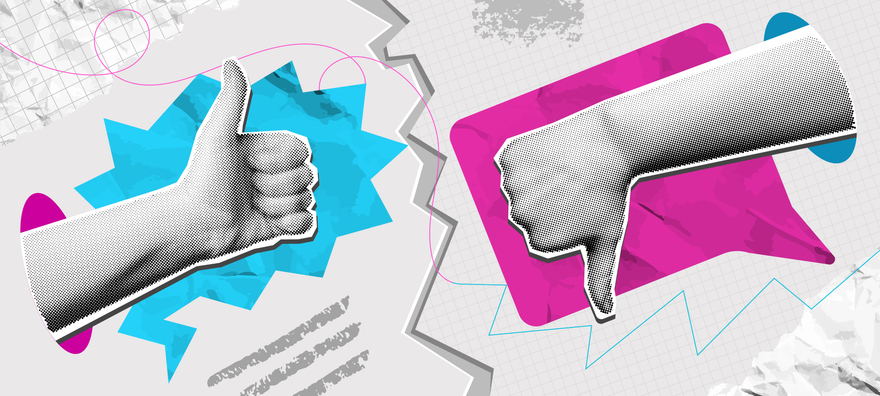Weighing up the pros and cons of taking psychiatric medication
Isabel recalls her journey towards developing a treatment programme that includes discovering the right medication for her.

I first started taking medication for my mental health when I was 19. I remember how scared I was before taking that first antidepressant tablet. Would it change my personality? What would happen to my thoughts? Would I still be in control? What side effects would there be?
Looking back, I wish someone had taken the time to explain to me what positive and negative effects I could expect, any long-term risks and how long they planned for me to be taking them. Fast forward 5 years and lots of medication changes, I’ve learned a lot since that first prescription and the biggest lesson I’ve learned is not to be afraid to ask questions.
Preparation and patience
Psychiatric medication can be a useful tool, but it isn’t the only option out there. I think we often expect them to work like magic when in fact it’s not a cure. For lots of people, there’s still a lot of personal work to get on the road to recovery.
When considering whether to take medication, it’s key to be aware of the possible side effects since the list is long and varies with each medicine. Most of the time, side effects will pass within a few days or weeks, but being aware of them can save you from a nasty shock and help you feel more prepared.
If possible, starting during the holidays or a weekend can be a good idea in case they make you drowsy, nauseous or have other physical or psychological side effects at first. It can give you and your body time to adjust and get used to the new medication.
With certain types of medication, it can take a couple of weeks for the intended effect to take hold. It can be hard to be patient during that time of uncertainty when you don’t know if the medication will be helpful for you or not.
Building a toolkit
Putting in place what I could to try and keep myself well and building up a toolkit of skills outside alongside medication was an important realisation for me. One thing that helped me a lot was adapting to my sensory environment. For example, using fidget toys, stress balls, essential oil diffusers, bubble tubes and earplugs helped reduce my anxiety and sensory overload a lot.
I also focussed on finding small activities that make me feel better like playing video games, colouring, journaling, baking, listening to music, having a shower with nice smelling shower gel and keeping in contact with friends.
Having a symptom tracker was useful because I wasn’t always sure if the medication was making a difference, so this gave me a sort of before and after comparison. I didn’t find medication alone helpful. Putting in place strategies in my day-to-day life, building a routine that works for me, sleeping well, finding a therapist who was a good match for me and meeting with people who face the same challenges as I do as well as understanding my needs, emotions and boundaries, were the most significant steps for me.
I also asked for accommodations at university to help make my course more manageable and am no longer afraid to ask for practical support with daily life activities from friends either.
Take your time
For me, it’s vital to know why you are going on medication, what changes you are hoping to see, what the possible side effects are and what else you can put in place at the same time to maximise the effects of medication. These are all questions you can ask your prescriber.
It’s ok to take your time to consider, do your own research and talk it over to see if you feel comfortable with any possible risks before deciding to start medication. It’s also so important to remember that medication doesn’t help everyone. Not everyone responds to antidepressants, antipsychotics, mood stabilisers, ADHD medication or other types of psychiatric medication.
It can be a frustrating and long process of trial and error to find something that fits. Don’t hesitate to talk to your GP or psychiatrist about alternatives and accessing therapy. Furthermore, if you aren’t comfortable with the medication you are taking, you can always ask to change, but it’s essential to get medical advice on how to do this and to taper down the dosage progressively, never stop brutally at once.
Personal choice
Taking medication is a personal choice and there is no right or wrong answer. It can be helpful in certain circumstances for certain people and not for others. On the one hand, there is no shame in taking medication and on the other, not taking it doesn’t mean you aren’t struggling. We are all on our own journeys and trying to find the best tools to help us.
Feeling overwhelmed and want to talk to someone?
- Get anonymous support 24/7 with our text message support service
- Connect with a trained volunteer who will listen to you, and help you to move forward feeling better
- Whatsapp us now or free-text SPUNOUT to 50808 to begin.
- Find out more about our text message support service
If you are a customer of the 48 or An Post network or cannot get through using the ‘50808’ short code please text HELLO to 086 1800 280 (standard message rates may apply). Some smaller networks do not support short codes like ‘50808’.






